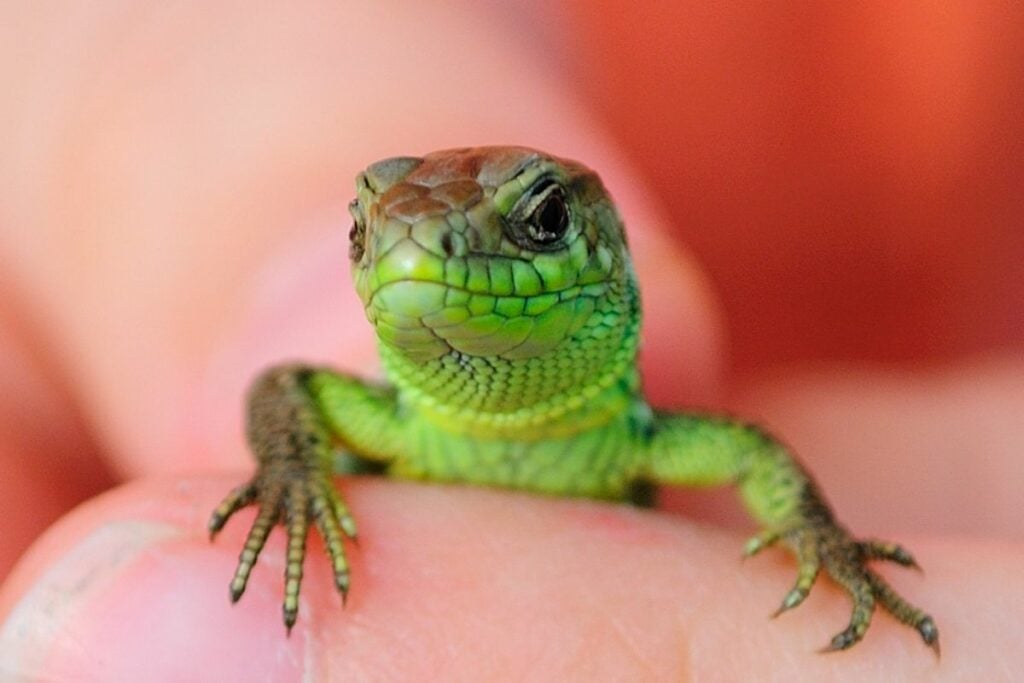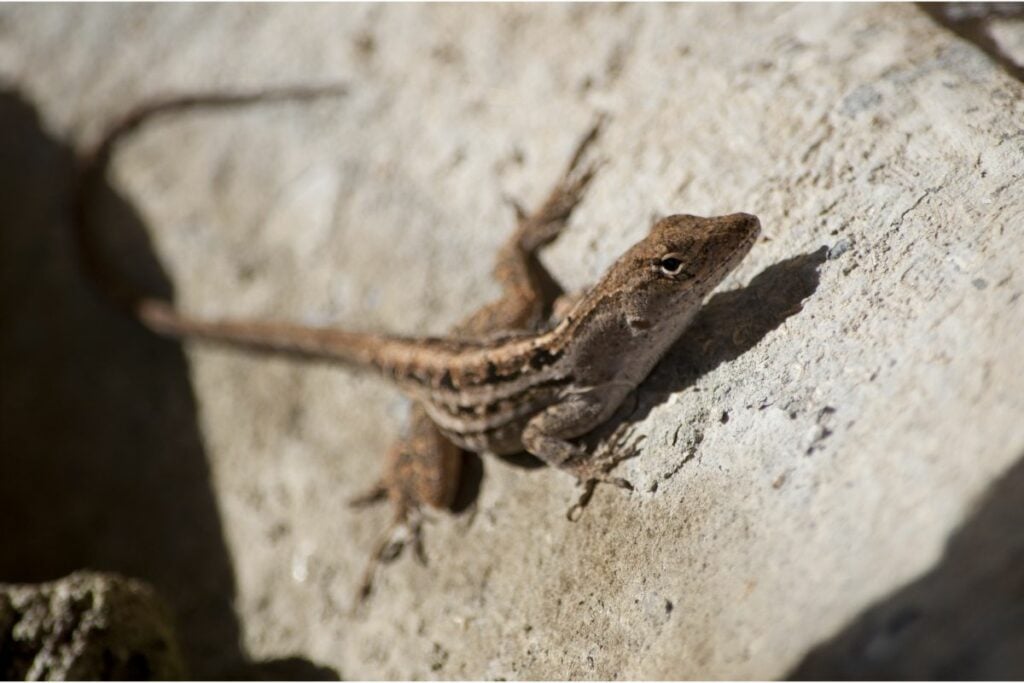There are many types of reptiles that make noises, whether it’s the defensive hiss of a snake or the grunts of a turtle, but lizards are a little more unique.

The truth is, there are only a few lizards that actually have the vocal capabilities of creating noises, but out of the ones that do, they can give off a wide range of different sounds that all signify very different things to an owner.
If you’ve been hearing your lizard chirping up recently and aren’t sure how to respond, or you’re just curious to learn more about lizards in general, we’ve got everything you need to know about lizard noises right here to get you up to speed.
What Types Of Lizards Make Noises?
It can be very easy to think that lizards are completely mute if you’ve ever been around one before, but while many species do remain completely silent, there are others that will make vocalizations for many different occasions.
Out of the 5,000 different species, only a handful actually make vocal sounds, but one of the chattiest types of lizards, and one of the most popular species to keep as a pet, is the gecko.
As opposed to their other family members, geckos are considered fairly loud animals, especially when they’re young and haven’t yet grown close to their owner, but depending on what they’re trying to say, the noise can be completely different.
Different Lizard Noises

Let’s take a closer look at each of these noises that a gecko and some other smaller lizard species will tend to make, and what exactly each of them means.
Chirping
This is the most common noise that geckos and a few other lizards will make, and it often takes the form of a very high-pitched chirp, similar to that of a bird, which repeats a few times over.
If you hear your lizard chirping out, there is no need to worry as this simply means they are joyful, happy, and comfortable.
It can often be heard after they finish eating a fresh bowl of insects or fresh vegetables, or when they are still young and get excited easily at the sight of food or another creature.
Chirping is also the natural form of communication between geckos in the wild and in captivity, or they can use it to simply make themselves known to another lizard or a different animal entirely.
Either way, if you hear a light chirp coming from your lizard, it means that you’re being a good owner, so good job!
Clicking
While it is another very common sound made among geckos, clicking is a lot more of a negative response, and signifies that the lizard is stressed, annoyed, or uncomfortable. Clicking tends to sound like a very low vocal vibration which gradually gets louder over time.
This can often happen when the owner is handling the lizard, who may not exactly be in the mood to be carried around and just wants to relax in its tank.
They will also sometimes let out a clicking noise to mark their territory, especially if another lizard has been introduced to the tank.
When you hear clicking, make sure to place the lizard in a spot where they can relax away from other animals, and stop handling them immediately.
It’s very unlikely that a gecko, or any smaller lizard, will lash out at their owner when feeling stressed, but ignoring their calls can damage the relationship and make them a lot more cautious of being around their owner.
Barking
Some lizards will make a clicking noise when they feel irritated or annoyed, but when they feel truly threatened or in danger, they will let out a sudden bark, and often pounce towards the threat simultaneously to assert their dominance.
Lizards will also maintain a different pose when barking, usually standing very firmly upright on their legs with their mouth slightly open and their eyes wide.
Many lizards won’t bark in their cage unless a new lizard has been introduced, or if they are feeling threatened by the owner.
Always keep in mind that housing 2 male geckos is never a good idea, and this is when the barking will usually take place, but 1 male and 1 female is fine if you don’t mind having babies in a few months.
When you’re lifting your gecko out of the tank, ensure you never reach down above their head and never grab them by the tail. These are two ways to easily make them feel like an intruder is taking them away, which can then lead to barking.
Screaming
A quick squeal or scream is a sound that only young geckos will make, and it implies that they are currently feeling scared or threatened by what is surrounding them.
If you are caring for a juvenile gecko, be prepared to hear this screaming a lot as they likely won’t stop until they start to familiarize themselves with the world around them, but the best thing you can do at this time is to be as gentle as possible when handling them.
If the lizard is screaming and scurrying away when you try to pick them up, try gently stroking its back, and once they become familiar with this, then you can start lifting them up as they become more familiar with their owner and surroundings.
Why You Should Never Ignore Lizard Noises
Even if a lizard is simply trying to let its owner know how happy it is, you should always respond to them in a way that makes them feel acknowledged and cared for.
Remember that lizards are reptiles, so they will naturally be scared and threatened by humans and their owner at first.
This is why responding to their noises is crucial for improving this bond, even if it’s just simply rubbing their back or feeding them a treat.
Of course, this works the same way if they are irritated or stressed. Giving them their space to relax will teach them to respect and appreciate their owner much faster, making caring for them far easier in the long run.
Summary
Not many lizards make noises, but of the few that do, it is easy to tell each of the sounds apart, and now that you know what they all mean, you can easily attend to the needs of the lizard so that it can feel as safe and comfortable as possible while in your care.
- Can Leopard Geckos Eat Silkworms? - March 11, 2024
- Do Leopard Geckos Climb? - March 4, 2024
- Do Leopard Geckos Bask? The Answer Will Surprise You - February 21, 2024
